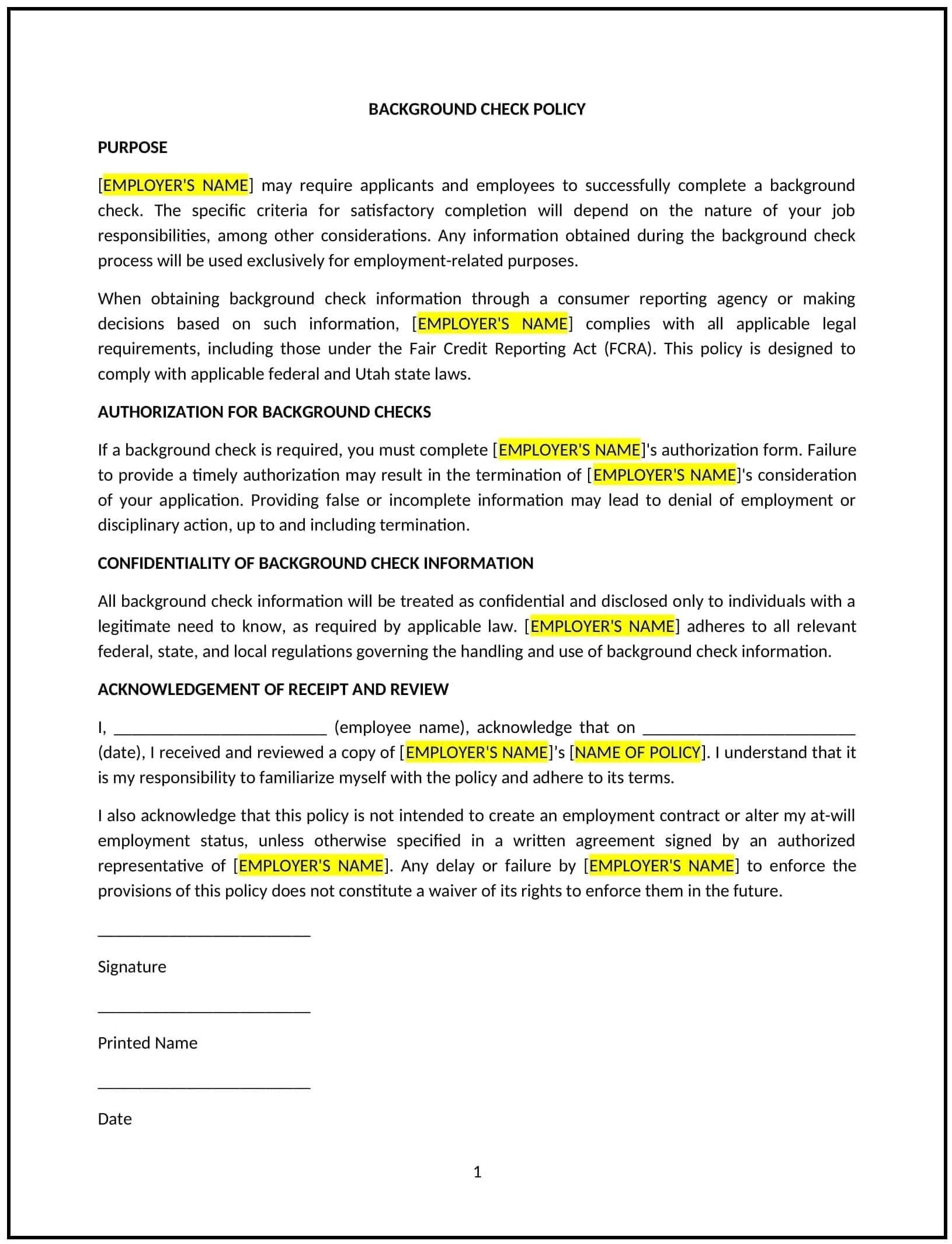Got contracts to review? While you're here for policies, let Cobrief make contract review effortless—start your free review now.

Customize this template for free
Background check policy (Utah)
This background check policy is designed to help Utah businesses establish clear guidelines for conducting pre-employment and ongoing background checks. It outlines the types of checks, consent requirements, and procedures for using background check information to make informed hiring and employment decisions.
By adopting this policy, businesses can reduce hiring risks, ensure workplace safety, and align with general best practices for fair and consistent background screening.
How to use this background check policy (Utah)
- Define scope: Specify the types of background checks conducted, such as criminal history, employment verification, or education verification.
- Obtain consent: Outline the process for obtaining written consent from candidates or employees before conducting background checks.
- Ensure compliance: Follow federal and Utah-specific laws, such as the Fair Credit Reporting Act (FCRA) and Utah employment regulations.
- Use information fairly: Establish guidelines for evaluating background check results and making employment decisions.
- Provide disclosures: Notify candidates or employees of their rights under the FCRA and Utah law.
- Maintain confidentiality: Ensure background check information is stored securely and accessed only by authorized personnel.
- Review and update: Regularly assess the policy to ensure it remains compliant and effective.
Benefits of using this background check policy (Utah)
This policy offers several advantages for Utah businesses:
- Reduces hiring risks: Helps businesses make informed decisions by verifying candidate qualifications and history.
- Enhances workplace safety: Identifies potential risks by screening for criminal activity or other red flags.
- Promotes fairness: Ensures consistent and unbiased use of background check information.
- Aligns with legal requirements: Helps businesses comply with federal and Utah-specific laws.
- Builds trust: Demonstrates transparency and accountability in the hiring process.
Tips for using this background check policy (Utah)
- Communicate the policy: Share the policy with candidates and employees during the hiring process.
- Provide training: Educate hiring managers on conducting and interpreting background checks.
- Obtain consent: Ensure written consent is obtained before initiating any background checks.
- Evaluate fairly: Use background check information consistently and avoid discriminatory practices.
- Store securely: Maintain confidentiality by storing background check data in a secure system.
- Review regularly: Assess the policy annually to ensure compliance with evolving laws.